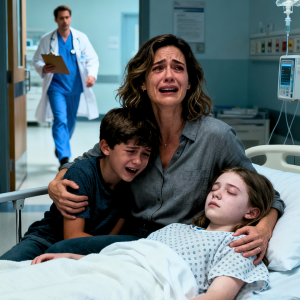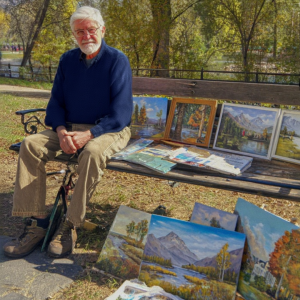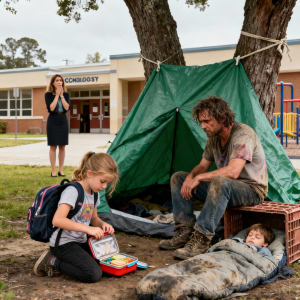
For many years I clung to the idea that silence protected a family. I see now that silence only allows shadows to grow.
My name is Lorraine Whitaker. I spent decades believing I had raised two decent sons. The elder, Matthew, was charismatic, full of ambition, the sort of boy whose dreams seemed destined to escape the confines of our modest home in Yorkshire. My younger child, Stephen, spoke little and kept to himself, and I convinced myself his quietness was simply temperament, nothing more.
In the summer of 1996, our lives broke apart. Matthew went out one evening and never returned. By dawn, the police were at our door, their faces rehearsed in sympathy. They told us his body had been found at the base of the Whitfell crags, and they called it an accident, a misstep on uneven ground. My husband, Gerald, and I laid our firstborn in the earth with more questions than answers, clinging to the official story because what else could we do?
The years that followed seemed to bend around grief. Stephen became the dutiful son. He stayed in town, apprenticed as a stonemason, married a woman named Marianne, and raised two children. He stopped by each week with bread and milk, fixed our leaky pipes, and asked if we needed anything. Neighbors called him devoted, the son who had stepped into his brother’s absence.
And yet, something inside me stirred uneasily whenever I looked at him. His affection never lingered when others weren’t watching. His embraces felt like gestures performed for the stage of family life, not the substance of love.
Time carried us forward. Gerald and I aged, our hair thinned, our steps slowed, and Stephen’s reputation in the village only grew stronger. But whenever the family gathered for a meal, when laughter rose around the table, I sometimes caught a hollow quiet at the edges, as if Matthew’s spirit were hovering, asking me to see what I had been avoiding.
One autumn evening, as rain pressed against the windows, Gerald sat on the side of our bed, trembling. He could barely meet my eyes. “Lorraine,” he said softly, “I never told you everything about the day Matthew died.”
The world seemed to tilt.
He confessed that he had followed the boys up the crags after Matthew had discovered Stephen had been taking money from him. Gerald saw the moment with his own eyes. Stephen shoved his brother. He didn’t stumble. He didn’t slip. He was pushed.
For twenty-nine years, my husband had swallowed the truth in silence.

My breath came ragged. The son who kissed my cheek each Sunday, who lifted my shopping bags, who smiled for photographs, had killed his brother with his own hands.
I felt the walls close in around us.
The morning after, the world outside looked unchanged, yet I could not meet Stephen’s gaze without hearing Matthew’s cry. The weight of Gerald’s words pressed on me until my chest ached.
Then, as though fate itself wished to test us, Stephen and Marianne invited us for a weekend “outing.” They suggested a walk near the very cliffs where Matthew had died, claiming fresh air would be good for us all. At the dinner table, Gerald’s hand found mine beneath the cloth. His fingers were cold. We both understood what was really being suggested.
Later that night, Gerald pressed a small digital recorder into my palm. “If he tries anything, this will save us,” he whispered.
The following Saturday, I packed sandwiches with shaking hands. We drove out together, pretending to be an ordinary family. My voice faltered with every casual word, the thought pounding in my mind that my own child might push me to my death.
When we arrived, the moors stretched wide and silent. The cliffs loomed, cruelly familiar. While Marianne busied herself with the children, Stephen beckoned us closer to the edge. His smile was stretched too thin, his voice falsely warm.
Then I heard it. His voice, low and clipped, when he thought the wind had swallowed his words. “Once they’re gone, the house and everything else is ours. It’ll be quick, like before.”
The words carved through me.
Gerald’s hand tightened around mine. The recorder captured every syllable.
We allowed Stephen to believe he was leading us, but inside I felt something stir, something stronger than the fear. For the first time in decades, I felt Matthew beside us. Because this time, we carried truth, not silence.

Hours later, officers pulled us from the edge, alive. The evidence was already secured.
The trial was brutal. Stephen sat in his suit, Marianne weeping on the stand. But the recording was undeniable. The truth of Matthew’s death was spoken aloud at last. The villagers who once praised Stephen as loyal now stared at the floor.
The jury reached their verdict swiftly. Stephen was found guilty of murdering Matthew and attempting to kill us. Marianne, who had conspired in the plot, received her sentence as well.
When the judge read the decision, I did not feel triumph. Only a long, aching sorrow—for the boy I lost to violence, and for the son who chose envy over love.
Yet beneath the grief came something gentler: release. At last, Matthew’s name was not chained to the word “accident.” He had justice.
Now Gerald and I care for Stephen’s children. They are bright, curious, unbroken by the sins of their parents. One day, I will tell them the truth, not to burden them but to show them the cost of silence, and the power of courage.
At night, when the house rests in stillness, I sometimes whisper into the dark: “Matthew, we spoke for you.” And in those moments, I feel a quiet peace.
Because love does not endure in silence. It endures in truth.



